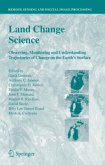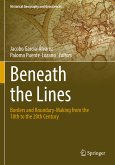The Hebrides has long been seen as an area that, when considered over time, was slow to absorb change. Indeed, from the nineteenth century onwards, it attracted the attention of scholars for being seen as having not just the oldest rocks in Europe but also, some of its oldest cultural practices and institutional forms. This unchanging 'archaic' character has continued to attract a great deal of research but, over recent decades, a counter view has emerged that highlights the changes that the region did experience. This book argues the case for the latter by drawing out how the institutional forms around which the region and its farming communities were organised changed over time. As background. It highlights the importance of understanding two key inter-related features that underpinned these changes: the low output of Hebridean farming with its high frequency of poor harvests and the range of environmental hazards that beset the region. Brought together, the interaction between these two features makes the survival strategies adopted by communities an important part of the region's history.Because society/environment interactions are at the heart of the problem, the book's discussion is presented as a study in human ecology. One of the benchmark studies of the region in modern times, or Sir Fraser Darling's The West Highland Problem: A Study in Human Ecology (OUP, 1955) adopted such an approach. This book gives this human ecological perspective on the region a greater time-depth.In addition to a Preface and an Epilogue, it is divided into 12 chapters:Title: The Hebridean World: Its Ecological History Through TimePreface1: The Hebrides: Their Physical Endowment and Its Challenges2: The Oldest Cultural Landscapes3: The Hebridean Mix: Picts, Scots and Vikings 4: How Land was Occupied Before Crofting 5: How the Land was Farmed before Crofting 6: Landscapes of Summer: the Shielings7: The Inter Tidal and Beyond: the Harvest of Shore and Sea 8:Survival on the Margins 9: The Landscapes of Crofting 10: The Harvesting and Processing of Grain 11: The Clearances for Sheep and Deer12: Hebridean Housing and SettlementEpilogue
Hinweis: Dieser Artikel kann nur an eine deutsche Lieferadresse ausgeliefert werden.
Hinweis: Dieser Artikel kann nur an eine deutsche Lieferadresse ausgeliefert werden.








